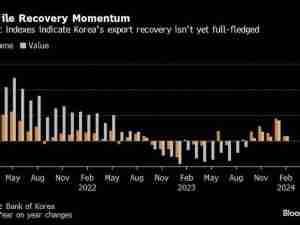The U.S. is requesting consultations with Mexico due to concerns that the nation is failing to meet its environmental obligations for protecting marine life under their trade deal.
Mexico has adopted environmental laws designed to prevent illegal fishing in the upper Gulf of California, the trafficking of protected species such as the totoaba, and to protect and conserve the vaquita porpoise. But available evidence raises concerns that the nation may not be meeting its commitments under the U.S.-Mexico-Canada agreement that took effect in 2020, the U.S. Trade Representative said.
Mexico has a 30-day period to respond to the U.S. request and schedule consultations, and a 75-day period to reach an agreement before the U.S. could potentially request that a formal panel hear arguments from the two nations. While the process is focused on getting Mexico to agree to actions, the conflict could ultimately lead to the U.S. imposing punitive tariffs, according to administration officials.
The vaquita is the world’s rarest marine mammal and on the edge of extinction, with only about 10 remaining, according to the World Wildlife Fund.
President Joe Biden has made environmental protection and countering climate change a hallmark of his presidency. He campaigned on pledges to slash planet-warming emissions, accelerate the deployment of renewable electricity and leverage the federal government’s purchasing power to propel clean energy. He moved quickly in his first week in office to reject the Keystone XL oil pipeline and rejoin the Paris Agreement.








